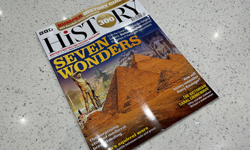Eight iron laws of modern media
1. The excitement is in the delivery, not the content
Somebody asked me the other day whether there would ever again be an act to equal the impact of the Beatles, or even the Sex Pistols. I can’t see how it’s possible. There’s immeasurably more music, as there is immeasurably more of everything, and therefore it’s impossible for one particular unit of that mass to equal the importance, the charisma, the weight, that acts like the Beatles and Sex Pistols once had. The only things in pop music that cause what you might call phenomenal excitement are the delivery mechanisms - the iPod, Spotify, YouTube and whatever’s coming next. Lady Gaga reaches a lot of people but iTunes reaches everybody and there’s nothing the former could do which would equal the impact of the announcement of just another tweak to the latter. As in pop music, so in publishing.
2. You will never again get the news first from a news organisation
People of a certain vintage can remember where they were when they learned that Kennedy was shot. They were watching the news. Younger people can remember where they were when they heard that the Princess of Wales was dead. They were listening to the radio. Even younger people can remember where they were when they heard that Amy Winehouse was dead. They were looking at their Twitter feed. I can remember where I was when I heard that Philip Seymour Hoffman was dead. I was having lunch when my son looked down at his phone - at least I think he did, there was no perceptible moment of news gathering - and then announced it. The world is porous and news travels at the precise speed that human interest wishes it to travel, not at the speed which suits traditional news gatherers. We will never again listen to the bongs at the beginning of the news and hear something we care about that we haven’t already heard. A text or a tweet will have got there first.
3. News is what a friend tells you
For instance. I’m aware that Amazon have just launched some new film service. It involves the customers for their Amazon Prime service, of which I’m one. It’s aimed at the Netflix customer base, of which I’m also one. I’m dimly aware that there has been some marketing and PR activity which has been signalling widely at the edges of my vision. But here’s the thing: I haven’t made any attempt to find out more about it. I’m not curious as I might have been in the days when information was limited and time was long. I’m vaguely aware that I will at some stage look into it, but that will only be when somebody close to me - a friend or associate, somebody I follow or one of those rare people who knows how to frame a message so that you take notice of it - draws it to my attention. At which point, I may do something about it. This applies to all attempts by organisations to tell us about something, to send a message from the few to the many. It is, as Alan Partridge said to the hotel porter with the thick Geordie accent, “just a noise”. No matter how hard advertising tries, it can never really equal the conviction of a message communicated by a friend who understands your interests.
4. There aren’t any big ideas any more - but there are some small ideas with massive implications
Trinity Mirror recently closed their People.co.uk website, after having devoted their energies to telling us that it was going to radically alter the way that news and gossip was disseminated. At the same time, they were flushed with the success of Us vs Th3m, their new data-driven launch. This was aimed at people they didn’t already publish to, headed up by a few people who had nothing to do with Trinity Mirror and went from concept to actual launch in five days, which is about as long as it took to compile a coffee order in the old days of media. Us vs Th3m is a tiny idea with massive appeal rather than a massive idea which turns out to have tiny appeal. I’ve no idea whether it makes money but they’ll learn far more about its potential by getting out there and doing it than they ever would sitting there looking out of the windows of Canary Wharf and thinking beautiful thoughts. Look around at all the things that have revolutionised the media business in the last twenty years - from texting to Whatsapp - and take note that they’re all tiny. Look at the things that have failed - from AOL to Murdoch’s Daily - and you can’t help but notice that they’re all huge.
5. Nothing needs eighty designers
The most jaw-dropping piece of information that came my way in the last month was that The Daily, Murdoch’s doomed newspaper on the tablet that he launched and closed last year, employed no less than eighty designers. And what were those eighty designers doing? They were producing 120 pages between them, which means they were doing slightly less than one spread each every day. That was because they had decided that their creativity would be inhibited if they produced The Daily on basic page templates. Every page had to start off as a completely fresh idea, creating on a blank slate. This is an idea so preposterous that it’s amazing to think that the people who had it are capable of walking and chewing gum at the same time. Nothing needs eighty designers. A rocket to the moon, possibly. A newspaper or magazine, never.
6. Kill it quickly and move on
Andrew Lloyd Webber and Tim Rice both launched new musicals last year. Neither of them quite tore up trees. Lloyd Webber announced the closure of his show the other day, which the papers say will have been embarrassing for him. He shouldn’t be embarrassed at all. He was right to try it and right to close it. The only thing he might have done better is to try out the idea on the cheap on the grounds that if it’s got a few good songs nobody gives a hoot about the production values and if it hasn’t then all the production values in the world won’t save it. To Tim Rice, I send lots of luck because if he does have to close his it will have cost him a lot more money.
7. If you’re so damned clever, do it yourself
The closure or shrinkage of local newspapers is always accompanied by the same wailing and gnashing of teeth, usually from journalists looking for jobs. I’m not surprised these people are fed up but I am righteously tired of hearing them blame it all on proprietors who wouldn’t invest in local journalism. They’re doing that because they’ve decided that the readers don’t value local journalism. If you think they’re wrong, then go out there and prove them wrong by doing it yourself. In this kind of bear market for ink and paper, I wouldn’t mind betting you could pick up a local newspaper for the price of a compact car. Then you could go out there and try a new way of doing things. It could be the end of something big and ailing and the start of something tiny but bursting with life.
8. Most reading is right handed
Reading was once an activity carried out by somebody sitting down holding a book or newspaper in two hands and turning the pages. That’s probably not what you’re doing right now. You’re reading right handed with your hand on the mouse or your right index finger flipping the pages on a screen. This is like talking to somebody who’s got their hand on the doorknob. The message is “I’m not stopping”. You’re not reading this from the top to the bottom. Since I’ve bothered to put crossheads in this piece, you’ve just read those first and then decided which ones to bother reading further. Other people have found their way down here because I’ve used the word SEX. Right handed reading means two things: it has never been easier or more tempting to stop reading something and go to something else. (In fact, as Netflix and iTunes have found, the problem with unlimited choice is lots of people choose not to choose.) The second thing it means is that lots of people are largely reading in order to comment, to argue, to rebut. And much of what they will take issue with will be things you didn’t say but things they wish you had said because they’ve got a really good point to make about that. Right handed reading is actually no relation to traditional reading. It’s an entirely new form of activity. I’m not saying it’s better. I’m not saying it’s worse. It’s the way it is. You can argue below.












